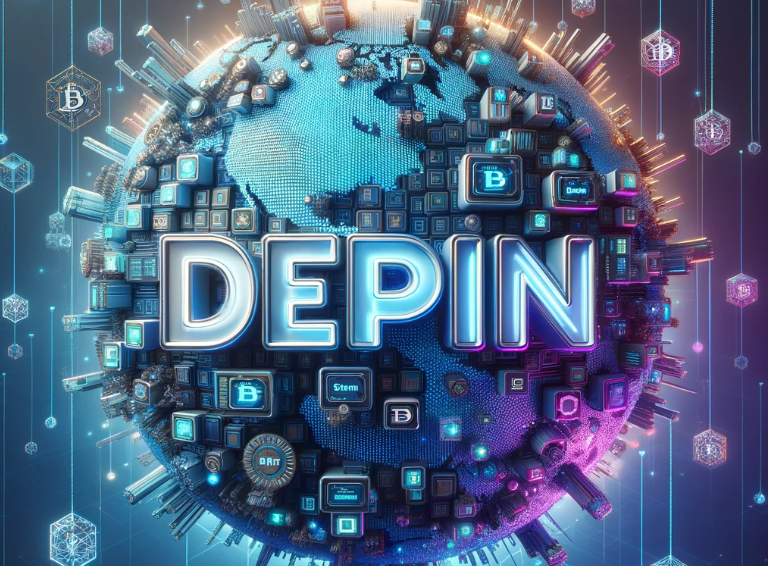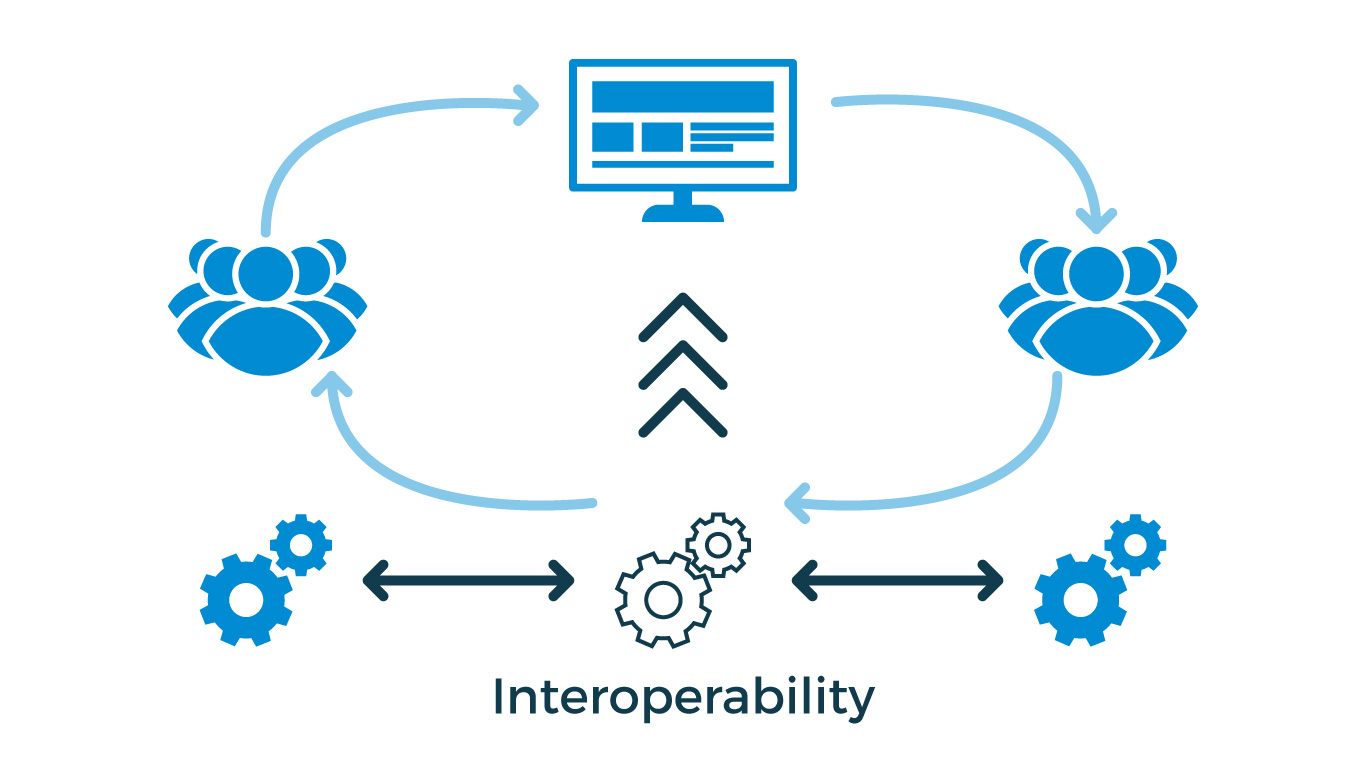In the digital age, identity management is crucial for online security and privacy. Traditional systems, often centralized and controlled by a single entity, are vulnerable to data breaches, identity theft, and user data exploitation. Decentralized Physical Infrastructure Networks (DePIN) offer a transformative approach, leveraging decentralized technologies to revolutionize identity management. This blog explores the concept, benefits, challenges, and future prospects of decentralized identity management with DePIN.
Understanding Decentralized Identity Management
Decentralized identity management refers to systems where individuals control their identities without relying on a central authority. Key principles include:
Self-Sovereign Identity
Self-sovereign identity empowers users to own and control their personal data, deciding what to share and with whom.
Decentralized Identifiers (DIDs)
DIDs are unique, user-controlled identifiers independent of centralized registries, providing secure and verifiable identities.
Verifiable Credentials
These are digital certificates issued, presented, and verified securely and decentrally, allowing individuals to prove their identity without revealing unnecessary information.
Decentralization vs. Centralization
Unlike traditional systems, decentralized identity management eliminates central databases, using blockchain and other decentralized technologies to ensure secure, tamper-proof identities.
The Role of DePIN in Identity Management
Decentralized Physical Infrastructure Network (DePIN) plays a crucial role in transforming identity management by providing a secure and privacy-centric framework. In traditional systems, identity data is often stored in centralized databases, making it vulnerable to breaches and unauthorized access. DePIN leverages blockchain technology and advanced cryptographic methods to decentralize the storage and verification of identity information, ensuring that no single point of failure can compromise user data. This decentralized approach allows individuals to have full control over their personal information, empowering them to share only what is necessary with third parties. By enabling self-sovereign identities, DePIN enhances the security and privacy of identity management systems, reducing the risks associated with centralization and fostering trust in digital interactions. As digital identities become increasingly vital in our connected world, DePIN’s role in providing a robust, secure, and user-centric identity management solution is indispensable.
Key Features of DePIN
- Decentralized Identifiers (DIDs): Unique, user-controlled identifiers.
- Verifiable Credentials: Secure digital certificates for identity proof.
- Self-Sovereign Identity: User ownership and control over personal data.
- Interoperability and Standards: Compatibility across platforms and services through open standards.
Benefits of Decentralized Identity Management
Decentralized identity management offers numerous benefits that enhance security, privacy, and user control. Firstly, it significantly reduces the risk of data breaches by eliminating centralized databases that are prime targets for cyberattacks. Instead, user information is stored across a distributed network, making it harder for unauthorized access. Secondly, it empowers individuals with self-sovereign identities, allowing them to manage their personal information and share it selectively without relying on intermediaries. This increases user privacy and reduces the potential for misuse of data. Additionally, decentralized identity management streamlines verification processes, as blockchain technology can instantly validate identities without the need for multiple checks by different entities.
Enhanced Security and Privacy
Enhanced security and privacy are at the core of decentralized identity management. By decentralizing data storage across a blockchain network, the risk of large-scale data breaches is significantly reduced. Users maintain control over their personal information, deciding who can access it and for what purpose. This self-sovereign approach ensures that sensitive data is protected by cryptographic techniques, making unauthorized access virtually impossible. As a result, individuals enjoy a higher level of privacy and trust, knowing their identities are secure and managed independently of central authorities.
User Control and Ownership of Data
User control and ownership of data are fundamental principles of decentralized identity management. Unlike traditional systems where personal information is held and controlled by third-party entities, decentralized solutions empower users to own and manage their data. Individuals decide what information to share, with whom, and for how long, ensuring complete transparency and autonomy. This shift not only enhances privacy but also fosters trust, as users are no longer reliant on centralized organizations to safeguard their sensitive information.
Streamlined Verification Processes
Decentralized identity management significantly streamlines verification processes. By leveraging blockchain technology and decentralized identifiers, users can quickly and securely verify their identities without relying on multiple intermediaries. This reduces the time and effort required for verification, eliminating the need for repetitive identity checks and paperwork. Moreover, the use of cryptographic proofs ensures the authenticity and integrity of the verification process, making it more efficient and trustworthy for both users and service providers.
Investing in the decentralized future with DePIN ensures robust security and empowers users with control over their digital identities and data privacy. Join the revolution today!
Use Cases and Applications
Digital Identity Verification
Decentralized identity management reduces fraud risk and ensures secure access to digital platforms.
Access Control and Authentication
Organizations can securely control and authenticate user access without centralized databases.
Financial Services and KYC (Know Your Customer)
Streamlines KYC processes, reducing costs and ensuring regulatory compliance.
Challenges and Considerations
Decentralized identity management, while promising, also faces several challenges and considerations that need careful attention:
Privacy Concerns
One of the primary challenges is navigating privacy concerns. While decentralized systems aim to enhance privacy by giving users control over their data, ensuring robust data protection mechanisms is crucial. Striking a balance between transparency and privacy remains a continuous challenge.
Scalability Issues
Scalability is another significant consideration. As decentralized identity solutions gain traction, they must handle a potentially vast number of users and transactions efficiently. Ensuring that systems can scale without compromising performance is essential for widespread adoption.
Interoperability
Achieving interoperability across different decentralized identity platforms and traditional systems is a complex task. Standardizing protocols and ensuring seamless interaction between various identity solutions is necessary to foster widespread adoption and usability.
Regulatory Compliance
Navigating regulatory landscapes presents challenges as decentralized identity management solutions operate globally. Adhering to data protection laws, identity verification requirements, and other regulatory frameworks requires careful planning and compliance measures.
User Experience
Improving user experience is crucial for adoption. Simplifying the process of managing decentralized identities and ensuring intuitive interfaces for users are essential to overcoming barriers to entry and encouraging widespread adoption.
Security Risks
Addressing security risks such as identity theft, data breaches, and vulnerabilities in blockchain technology is paramount. Implementing robust security measures, including encryption, authentication mechanisms, and continuous monitoring, is essential to mitigate these risks.
Education and Awareness
Lastly, raising awareness and educating users and organizations about the benefits and risks of decentralized identity management is critical. Promoting understanding and trust in these new paradigms will play a pivotal role in their successful integration into mainstream applications and services.
Future Trends and Developments
Integration with Emerging Technologies
The future of decentralized identity management is closely tied to advancements in emerging technologies like artificial intelligence (AI) and Internet of Things (IoT). AI-driven identity verification processes and IoT devices managing personal data securely are likely to shape the landscape.
Expansion of Use Cases
As decentralized identity solutions mature, their application will likely expand beyond traditional sectors like finance and healthcare. Industries such as supply chain management, voting systems, and even social media platforms may adopt decentralized identity for enhanced security and user control.
Enhanced Privacy Features
Future developments will focus on enhancing privacy features. Innovations in zero-knowledge proofs, homomorphic encryption, and decentralized storage solutions will further bolster data privacy, ensuring that users retain full control over their personal information.
Interoperability Standards
Establishing interoperability standards will be crucial for the widespread adoption of decentralized identity solutions. Efforts to create common protocols and frameworks that enable seamless integration between different identity management systems will accelerate adoption across industries and regions.
Regulatory Frameworks
The development of regulatory frameworks tailored to decentralized identity management systems will shape their future deployment. Collaborative efforts between industry stakeholders and policymakers will be essential to establish clear guidelines that promote innovation while ensuring compliance with global data protection laws.
Blockchain Integration
Blockchain technology will continue to underpin decentralized identity solutions, offering immutable records and enhanced security. Innovations in blockchain scalability, consensus mechanisms, and smart contract capabilities will further enhance the reliability and efficiency of decentralized identity management.
User-Centric Designs
Future trends will prioritize user-centric designs that prioritize usability and accessibility. Streamlining user interfaces, simplifying identity verification processes, and empowering users with intuitive control over their digital identities will be critical for widespread adoption and acceptance.
Education and Awareness Campaigns
Promoting education and awareness about the benefits and risks of decentralized identity management will play a pivotal role. Initiatives to educate both consumers and businesses on best practices, security measures, and the value proposition of decentralized identity solutions will foster trust and drive adoption in the future.
Conclusion
Decentralized identity management with DePIN offers a revolutionary approach, leveraging decentralized technologies for secure, user-controlled identities. By addressing traditional system vulnerabilities, DePIN enhances security, privacy, and user control over personal data. The benefits, from reducing identity theft and fraud to streamlining verification processes, are vast. While challenges remain, the future of decentralized identity management looks promising, with emerging technologies and innovations paving the way for a secure and user-centric digital world.
Understanding DePIN’s role in identity management is crucial for organizations and individuals navigating the evolving landscape of digital identity. Embracing decentralized identity management can lead to a more secure and private online experience, empowering users and transforming industries worldwide.

 China
China Russia
Russia India
India










27 Comments
Learn Stock Market Trading | Earn Money | Practical Training – Video training guide. Download from GoogleDrive – : hhttps://mazkingin.com/learn-stock-market-trading-earn-money-practical-training/
Your words have resonated with us and we can’t wait to read more of your amazing content. Thank you for sharing your expertise and passion with the world.
Let me know what type of content you’d like to see more of in the future!
This blog is not just about the content, but also the community it fosters I’ve connected with so many like-minded individuals here
Mastering Python GUI Development with Kivy Framework: Transform Concepts into Functional Applications – Download ebook – hhttps://mazkingin.com/mastering-python-gui-development-with-kivy-framework-transform-concepts-into-functional-applications/
It’s not often that we come across content that really resonates with us, but this one is a standout. From the writing to the visuals, everything is simply wonderful.
Excellent post! It’s clear, concise, and full of useful information. I found it very helpful and will be recommending it to others. : nftbeyond.com
In-depth review of the latest iPhone, covering all new features and improvements to help potential buyers make informed decisions.
I have bookmarked your blog and refer back to it whenever I need a dose of positivity and inspiration Your words have a way of brightening up my day
Your writing is so eloquent and engaging You have a gift for connecting with your readers and making us feel understood
I have been struggling with this issue for a while and your post has provided me with much-needed guidance and clarity Thank you so much
This blog post is packed with great content!
Your writing is a breath of fresh air It’s clear that you put a lot of thought and effort into each and every post
As a fellow blogger, I can appreciate the time and effort that goes into creating well-crafted posts You are doing an amazing job
Your blog is a great source of positivity and inspiration in a world filled with negativity Thank you for making a difference
Your writing is so refreshing and authentic It’s like having a conversation with a good friend Thank you for opening up and sharing your heart with us
Drop a link to your favorite blog post of yours in the comments below, I’d love to read more.
This post truly brightened my day! I appreciate how you delve into the topic with such positivity and clarity. It’s refreshing to see content that not only informs but also uplifts the reader. Your writing style is engaging and always leaves me feeling inspired. Keep up the fantastic work!
Keep up the amazing work! Can’t wait to see what you have in store for us next.
From the bottom of my heart, thank you for being a source of positivity and light in this sometimes dark and overwhelming world
Your blog post was really enjoyable to read, and I appreciate the effort you put into creating such great content. Keep up the great work!
Love this appreciation for great content
Let’s spread the love! Tag a friend who would appreciate this post as much as you did.
Your blog is always a highlight of my day
I appreciate your creativity and the effort you put into every post. Keep up the great work!
Your blog is always a highlight of my day